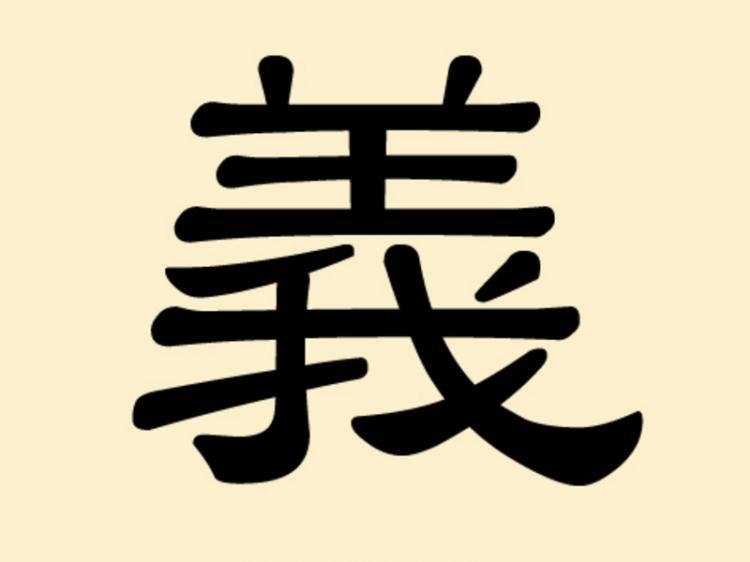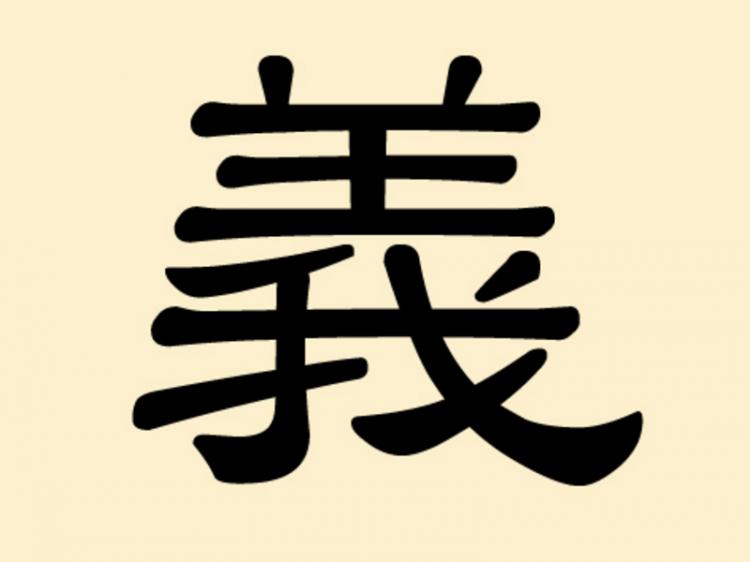The symbol 義 has broad inner content, and includes values such as justice, honesty, loyalty and reliability. It is composed of 羊 (sheep) on top and 我 (I, myself) on the bottom. The sheep is obedient and kind, and mutton tastes good and is nutritious. Given those characteristics, the sheep was considered to be a symbol for good luck and prosperity.
“我” was originally developed from the oracle bone script where it denoted a fighting implement with a sharp tooth. 我 and 羊 going to together to make 義 can be interpreted literally to signify “I am a sheep.” It means that it is possible to make sacrifices in the name of justice, similar to sacrificing a sheep to honor the gods.
The Chinese character 義 reminds people how they should conduct their lives, that is, selflessly. 義 belongs to a special category of ideograms, called huiyi characters (multiple meanings brought together); they are composed of ideograms with different meanings and their inner contents is a fusion of the several meanings
義 is the motif that defines the first Chinese historical novel with rhyming chapter headings called The Three Kingdoms by Luo Guanzhong in the Ming Dynasty. Various stories from the Three Kingdoms period (220-280 A.D.) are used to illustrate various aspects of the character 義.
For example, the first story of the novel “桃園三結義” illustrates those aspects of 義 that relate to loyalty among friends and the keeping of promises among the three main characters, Liu Bei, Guan Yu and Zhang Fei. The deep roots of justice in Chinese culture were manifested during the Ming dynasty, and were passed along for many years.






